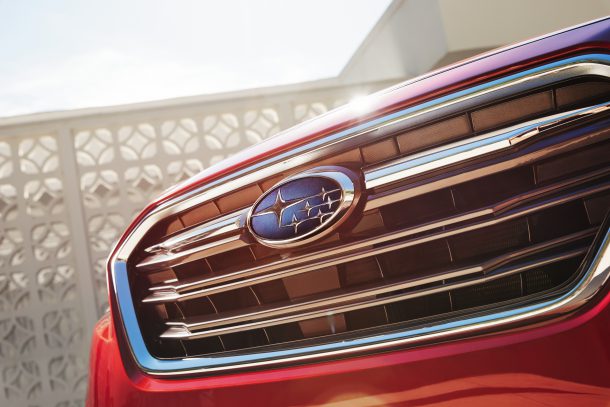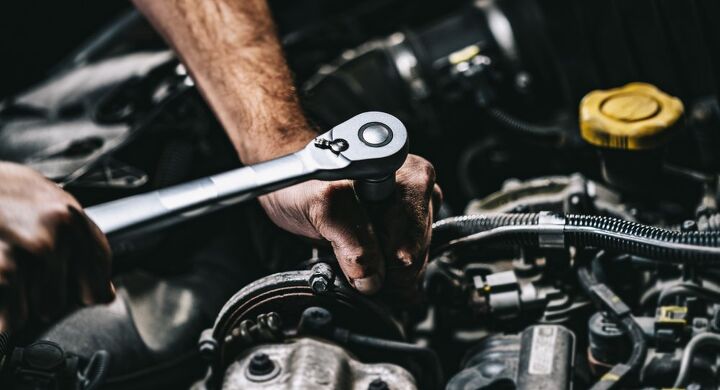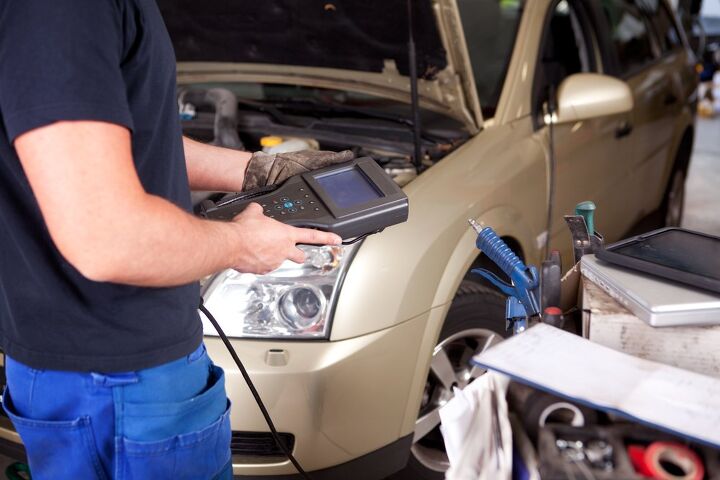#Right-to-repairLaws
Right-to-Repair Victory Forces Subaru to Tweak Things in Massachusetts
Subaru of America will be canceling Starlink telematics subscriptions on all new 2022 vehicles sold in Massachusetts thanks to the state having an amended right-to-repair law that’s wildly unpopular with global automakers. If you’ve been following our coverage, Massachusetts has become ground zero for consumer advocacy groups, independent repair shops, and car buyers that have grown concerned with the industry’s increased interest in data hoarding.
The argument is that the automakers are now building vehicles that violate customer privacy — by wirelessly transmitting information back to manufacturer data farms — while also setting them up to make independent repairs nearly impossible. This resulted in an extended legal battle where the Alliance for Automotive Innovation (AAI) went to bat to ensure the industry retained this lucrative venture. But it was stymied by the grassroots campaign launched against it. Massachusetts’ updated law currently requires all vehicles sold within the state (from the 2022 model year onward) using telematics systems to be equipped with a standardized, open-access data platform that would allow customers and unaffiliated mechanics to gain access.
Right-to-Repair Movement Gets Federal Attention
While the right-to-repair movement is fighting a national battle, the brunt of the action has been taking place on America’s coasts. Consumer activists are taking on multinational corporations that don’t want you to modify your mobile devices, affix aftermarket components to your vehicle, or have complete access to the data that’s amassed by the staggering number of products that are needlessly networked to the internet. After years of petitioning the government, often while arguing with high-paid lobbyists, the group achieved a major victory in Massachusetts in 2020. Voters decided that automakers should not be allowed to withhold information from the vehicle’s owner or use it as a way to prohibit them from taking their car into independent repair shops (rather than manufacturer-certified service centers) or tinkering with it themselves.
Now the federal government is getting involved. Joe Biden has signed an executive order that effectively forces the Federal Trade Commission (FTC) to take regulatory action that would settle the matter. But we don’t really know if that’s going to lead to a market where customers are free to treat their property (and private data) as they wish, one where the manufacturer holds all the cards, or simply result in a regulatory minefield displeasing all parties.
Automotive Alliance Manages to Delay Revised Massachusetts Right to Repair Law
The Alliance for Automotive Innovation (AAI) has managed to stall enforcement of a ballot measure recently passed in Massachusetts that expands access to data related to vehicle maintenance and repair. Last week, the relatively new lobbying/trade group asked a U.S. district court for a temporary order that would bar implementation of the state’s new right-to-repair rules aimed at giving vehicle owners more direct control of their private data and independent repair shops a fighting chance of staying in business. But the state’s attorney general has already decided that the rules are invalid until after federal cases have been decided.
The decision represents another victory for giant, multinational corporations at the expense of disgusting citizens interested in controlling their personal information and small business owners who have had it easy for far too long.
Automakers Continue Battling Right to Repair Laws in Massachusetts
Despite Massachusetts voters approving a ballot initiative giving customers and independent repair shops more access to the massive amount of data being tabulated by modern cars by a sizable margin, automakers haven’t given up their unpleasantly consistent opposition to the right-to-repair movement. Backed by consumer advocates, unaffiliated repair shops, the aftermarket community, and those interested in D.I.Y. projects, the movement has made meaningful headway in MA under the updated laws. Vehicles that collect and transmit information back to the automaker manufactured for 2022 (or later) model year are now required to be paired with a standardized open-access data platform accessible by owners and anyone else they feel should have access.
But the automotive industry continues to claim these mandates would be impossible to comply with on such a short timeline and has launched a federal lawsuit that the revised rules create a massive security risk in terms of customer privacy and vehicle safety. We’re inclined to believe this is an easy way for legacy automakers to buy time so they can ultimately find ways of not adhering to the updated laws so they can continue benefiting from being the sole purveyor of the data. But we’re willing to entertain their case before making any final rulings — not that it will have any impact on the official case.
Consumer Advocacy Group Demands Driving Data Be Controlled by Drivers
The Global Alliance for Vehicle Data Access (GAVDA) has issued a letter to automotive manufacturers around the world to request consumers be given direct access to the data generated by the vehicles they drive. While the group is comprised of organizations representing rental agencies, car sharing, independent vehicle repair shops that also want access to the information, it’s likewise backed by several consumer advocacy groups that worry customers and small businesses are being taken advantage of.
At the core of the letter is a refutation of claims made in a June 3rd memo the Alliance for Automotive Innovation (AAI) sent to Congress. That group is an assemblage of the world’s largest industry players with an aim to monetize driving data as quickly as possible. It just so happens that the duo are diametrically opposed to how the government should handle user information.
The Hero We Need: Consumer Access to Repair Coalition
When it comes to activism, it’s best to choose your battles carefully. Fortunately, there aren’t too many causes within the auto industry and most are easy to get behind.
Even though environmental activists sometimes find themselves at odds with reality, their hearts are usually the right place, and they’ve encouraged automakers to try new and interesting things with transportation. Safety advocates can likewise go overboard, but we wouldn’t have seen cars get dramatically safer (or heavier) since the 1970s if they hadn’t.
Our favorite has to be consumer advocacy, however. With the exception of the occasional predatory lawsuit looking to take advantage of a dumb corporate decision, there’s precious little to scoff about. It also tends to overlap with our pet peeves by decrying bad business practices within the industry. Case in point, the Consumer Access to Repair Coalition has recently asked Congress to rethink how vehicular data is shared — noting that automakers shouldn’t need real-time monitoring for repairs and that the technology likely poses an unnecessary security risk.
It's Payback Time: Right-to-repair Movement Targets John Deere
With the California Farm Bureau effectively giving away the right of farmers to repair their own equipment without involving the distributor in the spring of 2019, the right-to-repair movement fell back on its heels. Horrified by the ground lost, the group has rallied to better incorporate those hoping to fix or modify mobile devices and automobiles. Despite being disparate products, members share a common goal of returning control to consumers and preventing various industries from having a stranglehold on products they were supposed to relinquish ownership of when sold.
Hoping to better illustrate the plight of farmers, Bloomberg published an article outlining one man’s struggle with John Deere. Kevin Kenney is a Nebraska-based engineer who’s also a member of a grassroots campaign to undermine the corporate mandate against repairing its tractors. He believes farmers owe it to themselves to know how to fix their own equipment or risk finding themselves perpetually at the mercy of the manufacturer — while losing the skills to be self-reliant.
Why should you care? It’s presumed automakers will follow a similar business plan as vehicles become increasingly networked and electric, and as executives redefine what constitutes ownership while using proprietary software as their shield. Pretty much exactly what John Deere is doing.




















Recent Comments